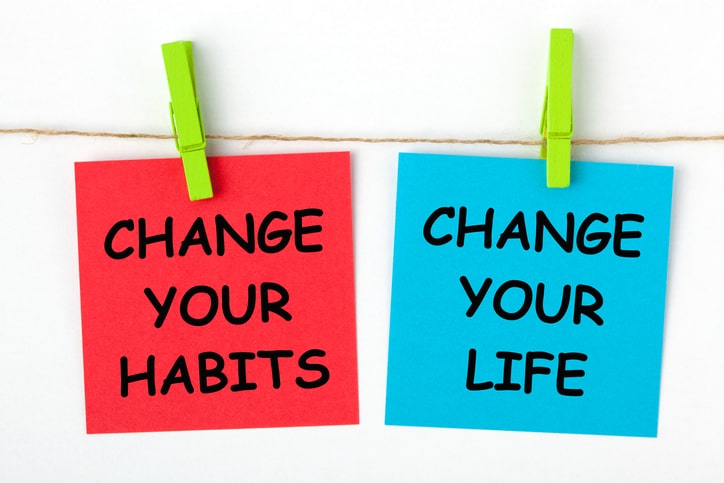Your personal brand identity is comprised of numerous aspects, such as your values, traits, and tendencies, that all add up to make you, you. Equally, your habitual thoughts, feelings, and actions influence how you show up and are perceived.
When you’re not present, you operate on autopilot.
If you’ve ever experienced arriving at an intended destination in your car without thinking, you were on autopilot. A study by Daniel Gilbert and Matthew Killingsworth revealed a remarkable discovery:
“The average person spends about 47% of their day on “autopilot” following automated behaviors while their thoughts wander from the task at hand.”
That’s almost half the day not being conscious of what you’re doing or saying, or the energy or vibe you’re projecting. Study participants also reported being significantly less happy when their minds wandered. I can relate, as I’m often shocked and disappointed once I realize I’ve tuned out and lost so much time and connection with others.
Being aware allows us to experience the moment as it unfolds.
Knowing how you’re wired and which of your survival instincts is dominant enables you to notice when you’re sliding into a habitual abyss. Using this insight, you can stop and reflect on the situation and choose how you’ll respond more wisely.
In his book, The Instinctual Drives and The Enneagram, John Luckovich highlights:
“Despite what we may believe about ourselves, the path that our lives take is almost always a lived expression of our Dominant Instinct. It underpins our basic self-concept and our view of reality.”
Luckovich continues:
“The Dominant Instinct is characterized by an excess motivation and urgency to address the needs of one instinct over the others. It means that the very core of our personality structure is organized around being able to meet the needs of our Dominant Instinct, and therefore there’s a great deal of action taken and time spent pursuing them.”
When you’re aware of your predispositions, you can take a more purposeful approach, manage your personal brand as you’d like it to be, and expand beyond your typical movements.
Witnessing your habits and brand impact.
As you look to cultivate and strengthen your relationships, here are five things to ask yourself to stay true to your personal brand:
Am I in alignment?
When you’re in congruence, your internal system, desires, values, and goals are in harmony with your outward persona and actions. You’ll know when you are aligned because your worries and concerns will subside, and you’ll feel confident, calm, and content.
Is what I believe impacting how I listen to others?
You may close yourself to other ideas and perspectives when you’re too caught up in your motives. Remember, what you deem vital may have no bearing on the other person, as what they prioritize and are motivated by is probably different. Sometimes it’s necessary to tone down your innate tendencies to improve the dialogue and interaction so you can listen with positive intention.
Am I too focused on how others perceive me?
If you’re too focused on what others think of you, you can lose sight of what’s most important for you to be you. Perceptions are the lens through which others view the world based on their core motivation, beliefs, values, and filters. How they interpret and discern what you’re saying and not saying is up to them. The more authentic you are, the less likely there will be confusion.
Is my inner critic running the show?
We all have those parts of us that show up when we’re embarking on something new or different. These are survival mechanisms driven to keep us safe and secure. When your inner critic takes over, you may lose sight of all objectivity and move into an automatic reacting position. By becoming aware and understanding more about the why behind this, you can begin to accept and control how you respond, especially in times of stress and uncertainty.
Are my preferences limiting my openness to others?
When we understand what our preferences are, we have an easier time shaping our environments and our goals to align more closely. However, you may unknowingly shut out new opportunities and experiences if you’re too strict or close-minded. Balance your wants, needs, and desires with the willingness to listen and compromise with others.
Activate your best with those around you.
Self-leadership is about getting to know yourself better and applying that knowledge to how you connect with others. To learn more, schedule a call with me. As a life-long student, certified coach, and communication consultant, my approach is personalized and customized, tapping into various assessments as the foundation for advancement.

